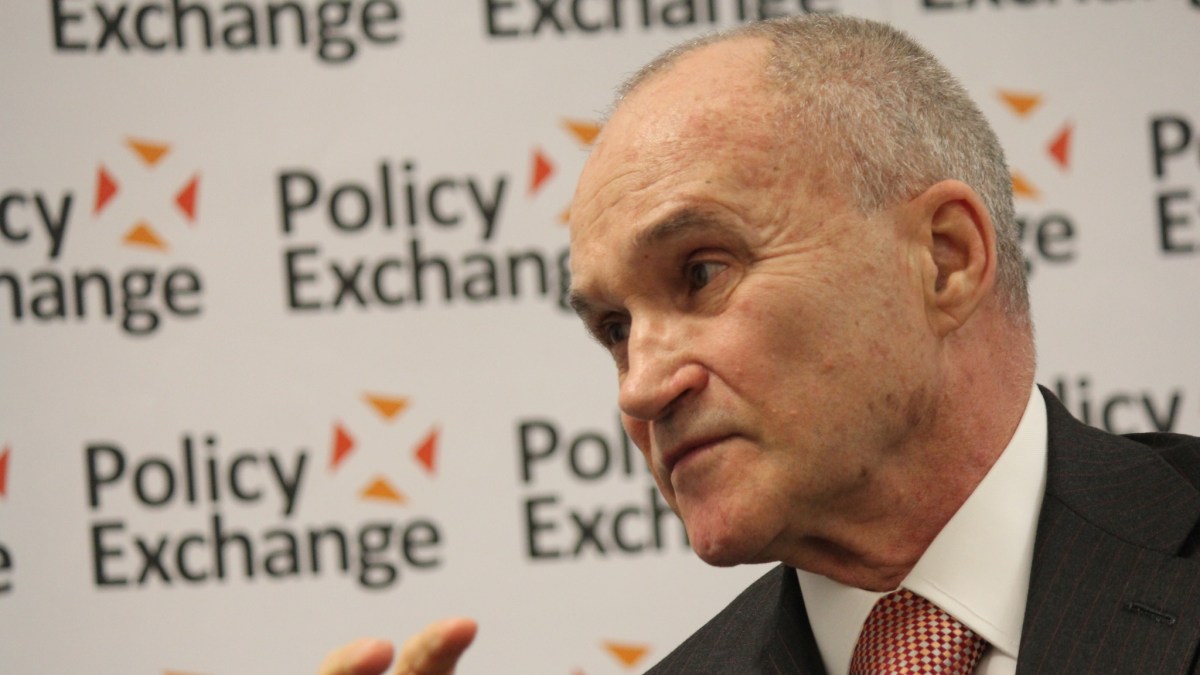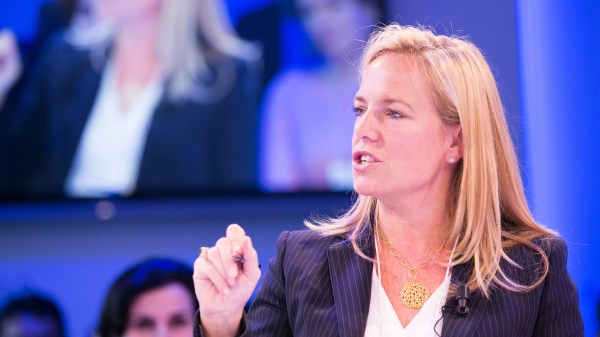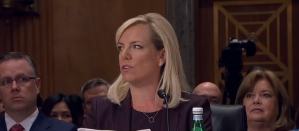Ray Kelly, Elaine Duke on short list for Homeland Security secretary

Officials have narrowed the list for the vacant secretary of Homeland Security position as the White House aims to find a replacement for retired U.S. Marine Gen. John Kelly, former DHS officials tell CyberScoop.
Current DHS Deputy Secretary Elaine Duke, who has been the department’s acting secretary since Kelly left to become White House chief of staff two weeks ago, is among the leading candidates, one former senior DHS official in touch with the administration said.
Several former officials from the last two administrations spoke to CyberScoop, which granted them anonymity to candidly discuss internal deliberations they had been briefed on and give their unvarnished views on the candidates.
In addition to Duke, the list of possible candidates for the secretary’s post, according to the former senior DHS official in touch with the administration, includes:
- Former New York Police Chief Ray Kelly
- Former Coast Guard Commandant and Deputy DHS Secretary James Loy
- Former DHS CFO Andrew Maner
- Former U.S. Citizenship and Immigration Services Director Emilio Gonzalez
“They vary widely in their experience with cybersecurity and technology,” noted another former official, adding “But the department is a very diverse place, it would be impossible to find a candidate who’s well-grounded in every aspect of its missions.”
Several former officials agreed that John Kelly would have a big input into the decision, and one of them said it was more likely that he might choose a fellow former military officer, someone he knows from his time at the Pentagon or as commanding general of U.S. Southern Command.
Duke is well-liked both within the department and on Capitol Hill. “She is the steadiest of steady hands,” said former DHS official James Norton.
For Duke, being in the acting position is a bit of a double-edged sword, noted a different former official. “You have the chance to show how you’d do the job … The disadvantage is, your actual performance is being measured against someone else’s hypothetical best day on paper.”
As a career official who spent her time outside of government doing business consulting, rather than any more public activity, Duke has little by way of a political profile — but that may be an advantage.
The candidates’ records are likely to be scrutinized very closely. During the speculation that preceded President Donald Trump’s selection of Kelly, for example, Rep. Michael McCaul, R-Texas, was mentioned as a possible nominee. McCaul, who serves as the chairman of the House Homeland Security Committee, came under heavy fire for having been insufficiently draconian on the immigration question.
An immigration purity test might be an issue for Gonzalez, one former official suggested. He was in charge of U.S. Citizenship and Immigration Services at a time when Homeland Security Secretary Michael Chertoff was leading the Bush administration’s campaign for comprehensive immigration reform — a plan rejected and eventually defeated by the same forces that criticized McCaul.
Gonzalez is “one of the great untapped resources of the Bush administration,” countered Norton, noting that he had served in the U.S. Army and on the National Security Council Staff.
Ray Kelly’s blunt style and Marine Corps service might endear him to President Trump, but a resume that includes a stint as President Bill Clinton’s commissioner at U.S. Customs and Border Protection is unlikely to win him support from Republicans in Congress.
There was broad agreement that, until a secretary has been named, it’s very unlikely that the job of undersecretary at the DHS National Protection and Programs Directorate, known as NPPD, will be filled, because the administration would want the new secretary to have a say in the selection. NPPD includes the department’s 24-hour watch operation, the National Cybersecurity and Communications Integration Center or NCCIC, as well as the U.S. Computer Emergency Response Team (US-CERT).
The NPPD undersecretary, although the post has physical security responsibilities as well, is generally regarded as the nation’s most senior civilian cybersecurity official — certainly outside of the White House.
And that delay in nominating an undersecretary is a problem, because NPPD is trying, with support from lawmakers on the House Homeland Security Committee, to transform itself from a headquarters element into an operational cybersecurity agency with a nationwide presence.
“Career officials can only take it so far,” Randi Kieffer, a former NCCIC official, told CyberScoop. “There are a lot of very smart and dedicated people there. They can keep it moving, but if you want a change in direction, you need [politically-appointed] leadership,” she added.
“The key thing [from a cybersecurity point of view] is getting that undersecretary job filled, and it’s unlikely that would happen before the new secretary is nominated,” Christian Beckner, deputy director o the George Washington University Center for Cyber and Homeland Security, told CyberScoop.
Beckner, who previously was a staffer on the Senate Homeland Security and Government Affairs Committee, said the nominee could weigh in informally on the choice of undersecretary, even while their own nomination was under consideration.
Two former officials told CyberScoop the administration plans to do away with at least one of the two deputy undersecretary positions that report to the undersecretary. “I’ve never seen the sense” in having two deputies, said one, noting that there are two assistant secretaries, one for physical infrastructure and the other for cybersecurity and communications.
Beckner said he hadn’t heard of a plan to do away with the positions, but noted that they were not codified in law. Getting rid of them would be a simple matter of “executive inaction,” he said, meaning not nominating anyone.






